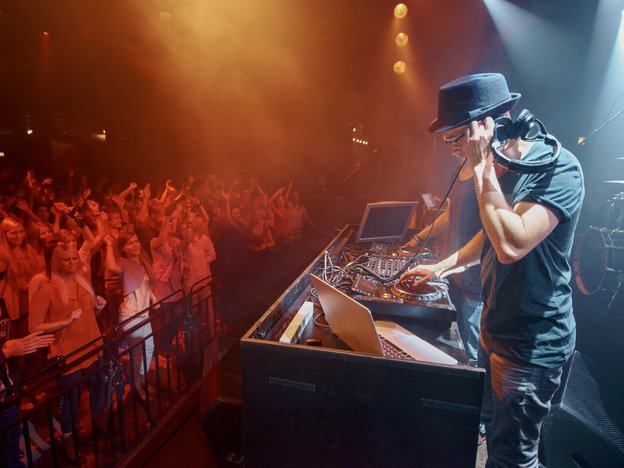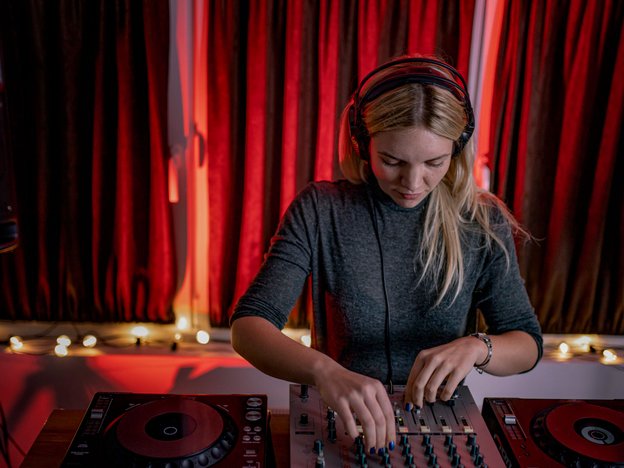DJ, Kaituku waiata
Also known as
- Disc jockey, radio DJ, nightclub DJ, mobile DJ, turntablist
DJs play and mix recorded music at nightclubs, concerts, festivals, special events and on radio stations.

Your pay could be
$48K
Lower
$56K to $138K
Most common
$182K
Upper
How does this pay compare?
Pay is before tax

DJs
- usually work irregular and long hours, including evenings and weekends and may work part time
- usually work at nightclubs, radio stations, concert venues or outdoors at festivals and may travel locally and nationally
- may work in hot and noisy conditions
- need to be creative, organised and work well under pressure
Tasks
- review audio or video recordings
- test performance of electrical, electronic, mechanical, or integrated systems or equipment
- estimate time or monetary resources needed to complete projects
- select resources needed to accomplish tasks
- edit audio or video recordings
- mix sound inputs
- maintain current knowledge related to work activities
- assemble electrical or electronic equipment
- operate control consoles for sound, lighting or video
- maintain records, documents, or other files
Enterprising
Creative
Practical
Interests that fit this job
Interest quiz,
Kairoro Whakaritea
Do the Interest quiz to find out how well your interests fit with this job.
Do the quizYou usually need experience to become a DJ and a qualification may be useful.
You may need
- experience in similar work
- a New Zealand Certificate in DJ and Music Production (Level 4)
If you’re in school
You usually need NCEA Level 2 to do the study or training for this job.
Loading job ads
Other career ideas in Visual and performing artsĒtahi atu huatau aramahi i Ngā toi ataata me ngā mahi a te rēhia,
Showing career ideas 1-6 of 16